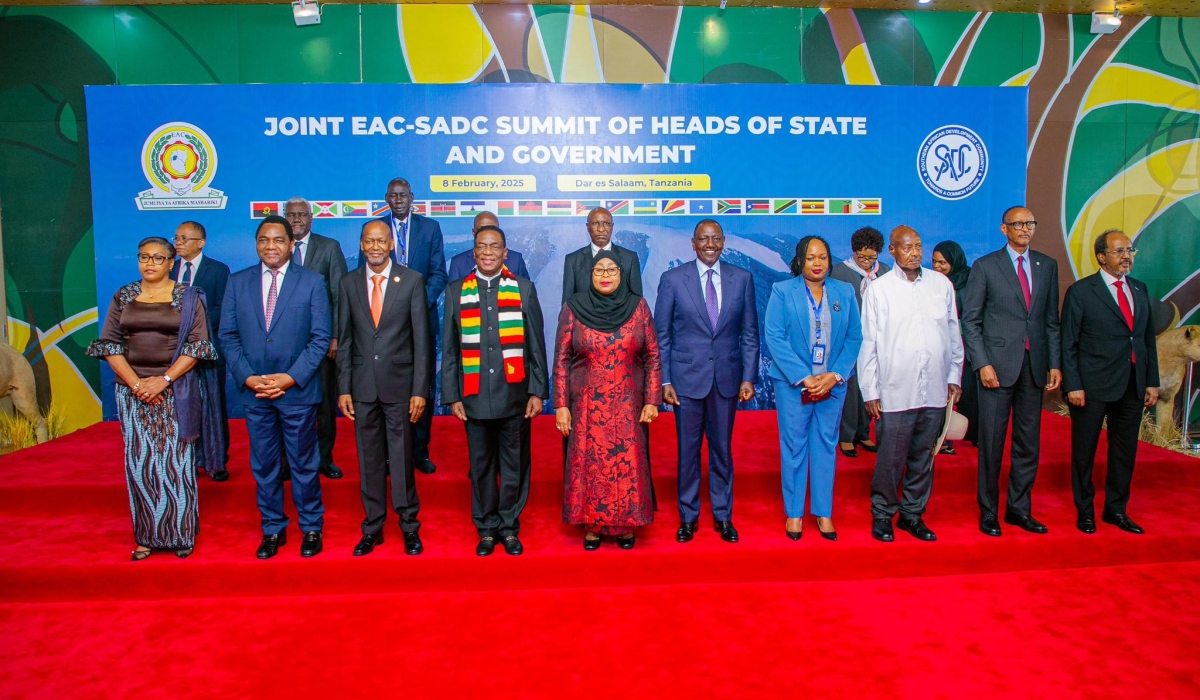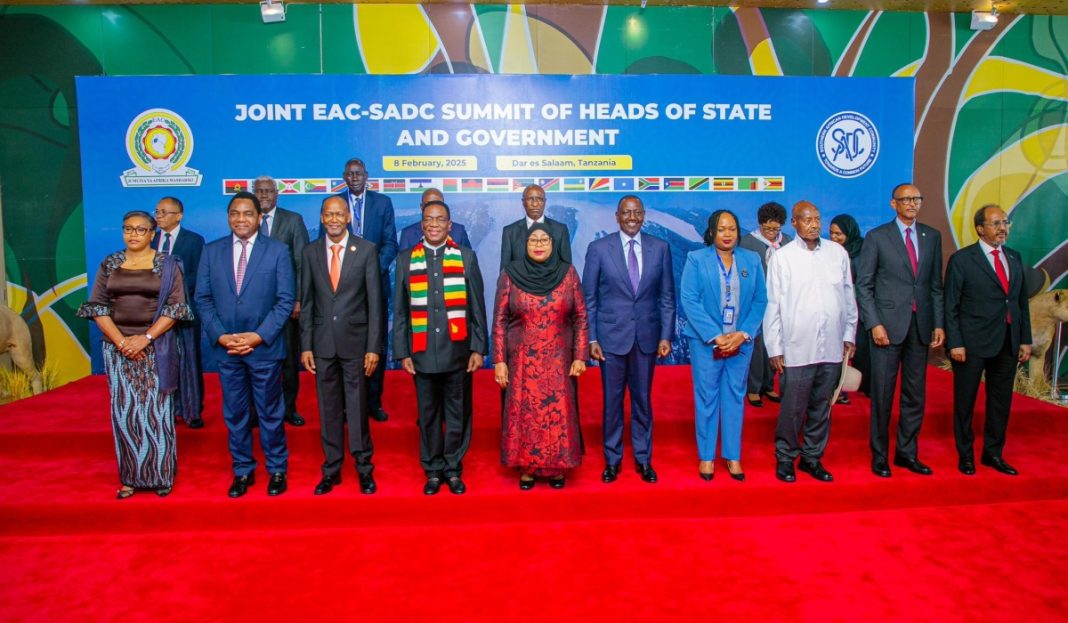In a significant development for peace efforts in the Democratic Republic of Congo (DRC), South African President Cyril Ramaphosa hailed the outcomes of the East African Community (EAC) and Southern African Development Community (SADC) heads of state summit held on February 8 in Tanzania. The summit’s key resolution was the inclusion of both state and non-state actors, including the M23 rebel group, in peace talks.
President Ramaphosa, whose government has faced scrutiny over the deployment of South African troops to eastern DRC under an offensive mandate to combat the M23, expressed optimism following the summit. “The outcomes of the summit provide a beacon of hope for the troubled eastern Democratic Republic of Congo,” he wrote on the presidential office’s website.
Troop Deployment Under Scrutiny
The decision to deploy South African forces has sparked criticism at home. On February 4, South African parliamentarians grilled Defence Minister Thandi Modise and the chief of the South African National Defence Force (SANDF) about the mission. Some lawmakers raised concerns over potential economic interests of senior South African politicians in the DRC, questioning whether these influenced the country’s military involvement.
A Push for Inclusive Dialogue
Reflecting on the outcomes of a recent SADC summit in Harare, Zimbabwe, President Ramaphosa emphasized the importance of inclusive negotiations. “The best way to resolve a conflict is to ensure that all parties to the conflict are involved in the negotiations that lead to the resolution, whether they are state actors or non-state actors,” he noted.
One of the most groundbreaking decisions from the joint EAC-SADC summit was the agreement to initiate direct dialogue between all parties, including the Congolese government and the M23 rebel group. These negotiations will be conducted under the frameworks of the Luanda and Nairobi peace processes.
Regional Leadership and Coordination
Ramaphosa commended the leadership of Kenyan President William Ruto and Zimbabwean President Emmerson Mnangagwa, who spearheaded the summit. “We are pleased that this inclusive approach was endorsed and adopted at the historic joint EAC/SADC summit,” he said.
He described the move as a “major step forward,” stressing that lasting peace in the DRC hinges on credible and inclusive diplomatic solutions. “Unless all parties to the conflict are brought around the negotiating table, all diplomatic solutions will lack credibility and be unsustainable in the long term,” he added.
Hope for Stability
The summit’s resolutions are seen as a pivotal moment for the DRC, which has long grappled with instability and violence in its eastern regions. The M23, a Congolese rebel group in conflict with the government over claims of denied rights, remains a significant player in the region’s security landscape.
The decision to engage both state and non-state actors in peace talks signals a shift toward a more inclusive and potentially effective approach to conflict resolution.

As regional leaders continue efforts to stabilize the DRC, the outcomes of the EAC-SADC summit could mark a turning point. With sustained diplomatic engagement and inclusive dialogue, there is renewed hope for peace in one of Africa’s most conflict-ridden regions.



